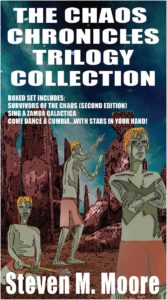The vagaries of English…
Perhaps English is the most changeable of all human languages, especially if you discount how English words creep into other languages. Yet it gives everyone a headache, from native speakers to those struggling to learn it. There are many reasons for this, but I’ll toss out two to start.
This topic occurred to me when I found that I’d written “reign” for “rein.” Rain, rein, reign—same sound, different spellings and meanings. Coincidentally I saw my error again on TV, although in this case it was intentional: In an ad for Draft King, an online gambling app (no, I don’t play because I hate any kind of gambling, except for publishing my stories), they ended with “Let It Reign.” While maybe the publicist just made an error, it could be a clever play on the name. Doesn’t excuse the error, of course.
Here’s one I often told to physics students about doing practice problems in Colombia: “They’re rough and tough, and though it’s hard, take a breath, cough if you have to, and get through it.” Rough, tough, though, cough, and through—all “-ough” words that are pronounced differently.
Sound-alikes with different spellings and meanings, look-alikes with different sounds and meanings—two vagaries of the English language. Native English speakers often don’t realize the problems other people might have learning English, but acceptable spoken English doesn’t imply English mastery for even native speakers. It’s a difficult language to master, period.
I’ve heard people complain about the multilingual signs used in transit in major cities in the U.S. They might say, “Why don’t they just learn English?!” (I’ll be nice and just say that “they” means anyone who has trouble speaking correct English or understanding it, a class that includes many Americans, even pros who do it for a living.) Imagine if the Dutch or Italians asked a similar question: “Why don’t these crazy American tourists just learn our language?!” European countries recognize that many people don’t speak the local language. Across the EU, and for many reasons, they recognize the diversity that’s bound to be found in 300+ million people (that might decrease a bit with BREXIT, but a lot of Brits don’t speak English either–is Cockney English, or was ‘Enry ‘Iggins just wrong?). The same goes for the U.S. with its 300+ million people, most of them immigrants (although some don’t want to recognize that). In New York City, over 800 languages and dialects are spoken. There’s a need for a universal language.
It’s not just tourist dollars at stake in Europe or ICE’s purification efforts in the U.S. Tourism is only part of business, and international business has adopted English as the universal language. Arguably it might not be the best choice for that, but that’s what we have. That ad where some guy claims to know Dutch—“Just OK is not good enough”—is telling. You either need sharp translators, or you need a common language. If he can negotiate at all, I doubt that Mr. Trump could negotiate in any other language besides English (he doesn’t speak or write even that well—maybe his native language is Twitterspeak?). That doesn’t mean we should ignore other languages outside of business circles. And speaking only a few words in another language at any meeting or event can make people feel good. I doubt that Kennedy spoke German, but that “Ich bin ein Berliner” speech probably did as much to end the Cold War than anything Reagan did…and it was loved by the Germans.
Consider all this as segue to a concern of mine: Does English prevent genre friction written in that language from having an international audience? Of course, many more people worldwide read it than speak it fluently—my physics students in Colombia used texts in English, for example—but are international readers missing out on some good storytelling because translations take so long? (It can go the other way too, of course. I read Gabo’s One Hundred Years of Solitude in Spanish long before it came out in English.)
Like many sci-fi writers, I’ve imagined a universal language that links planets. In my novels, they’re planets in an interstellar trade union (ITUIP = “Interstellar Trade Union of Independent Planets”). I just call it Standard; it evolves from various Earth languages, including Chinese and English. And ETs “speak it” too using implant devices hooked up to powerful AIs that provide quick translations of hard-to-learn ET languages and Standard, that amalgam and successor to English, hopefully with simplifications.
Those implant devices are descendants of current cochlear implant devices that have allowed some deaf children to hear their parents for the first time. They would also have the benefit of allowing any intelligent being to enjoy our genre fiction. Probably not sci-fi, though. They’re living in that sci-fi world, so why read it?
Languages will continue to evolve. (The interested reader can follow the evolution of English in David Crystal’s The Stories of English, one of the recommended non-fiction books listed on the “Steve’s Bookshelf” web page at this website.) As with many advances, sci-fi writers can write about this evolution too. I don’t think such advances will put any translators out of business anytime soon, though.
***

Comments are always welcome.
Chaos Chronicles Trilogy Collection. This bargain bundle of three complete sci-fi novels follows the future history of human beings from a dystopian Earth in the grips of multinational corporations and their mercenaries to the first contact with ETs on a colony planet…and far beyond. The development of Standard, that amalgam descendant of various earthly languages, is part of these epic tales. Available on Amazon and Smashwords and all the latter’s affiliated retailers (iBooks, B&N, Kobo, etc.) and lenders (Overdrive, etc.)
Around the world and to the stars! In libris libertas!
